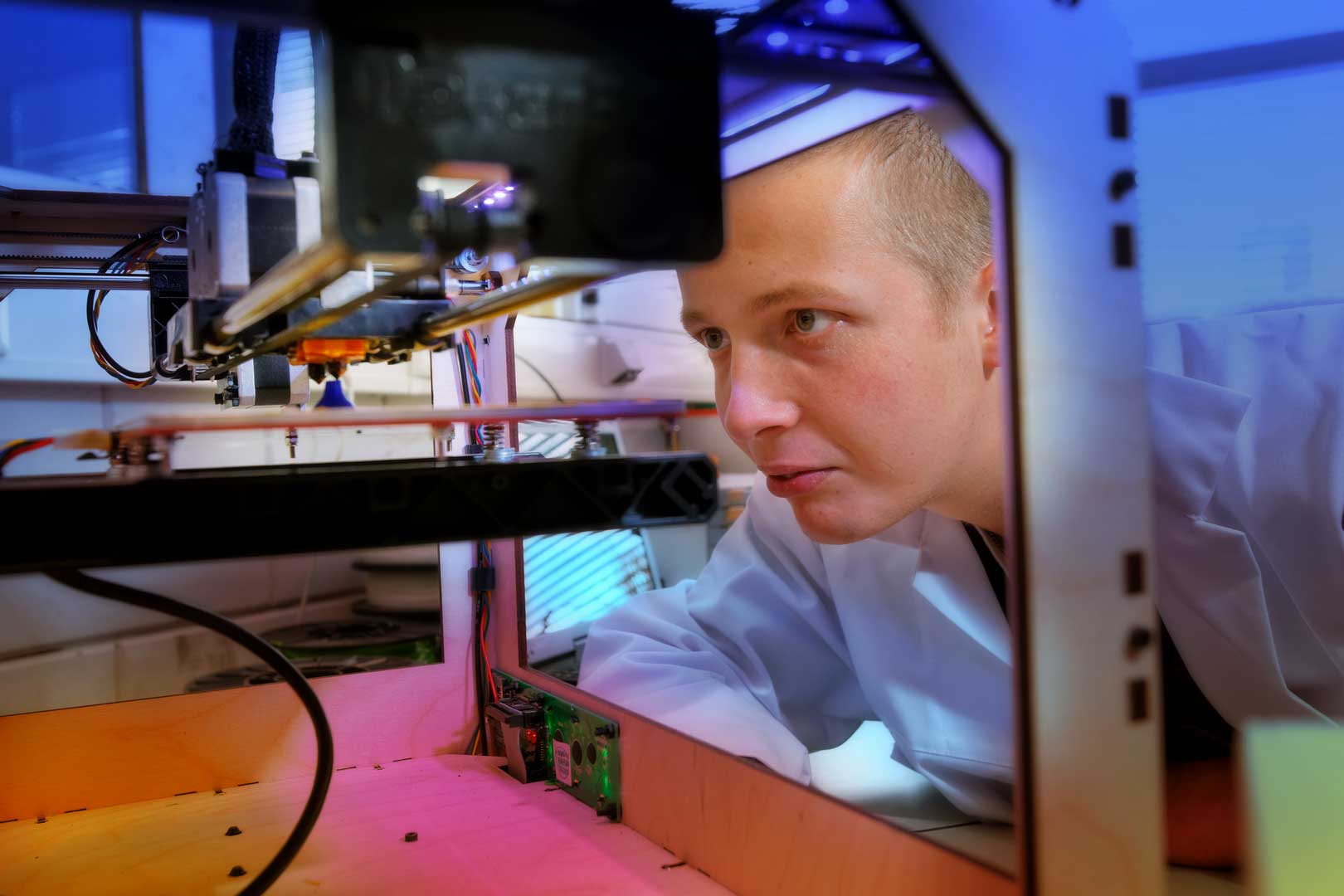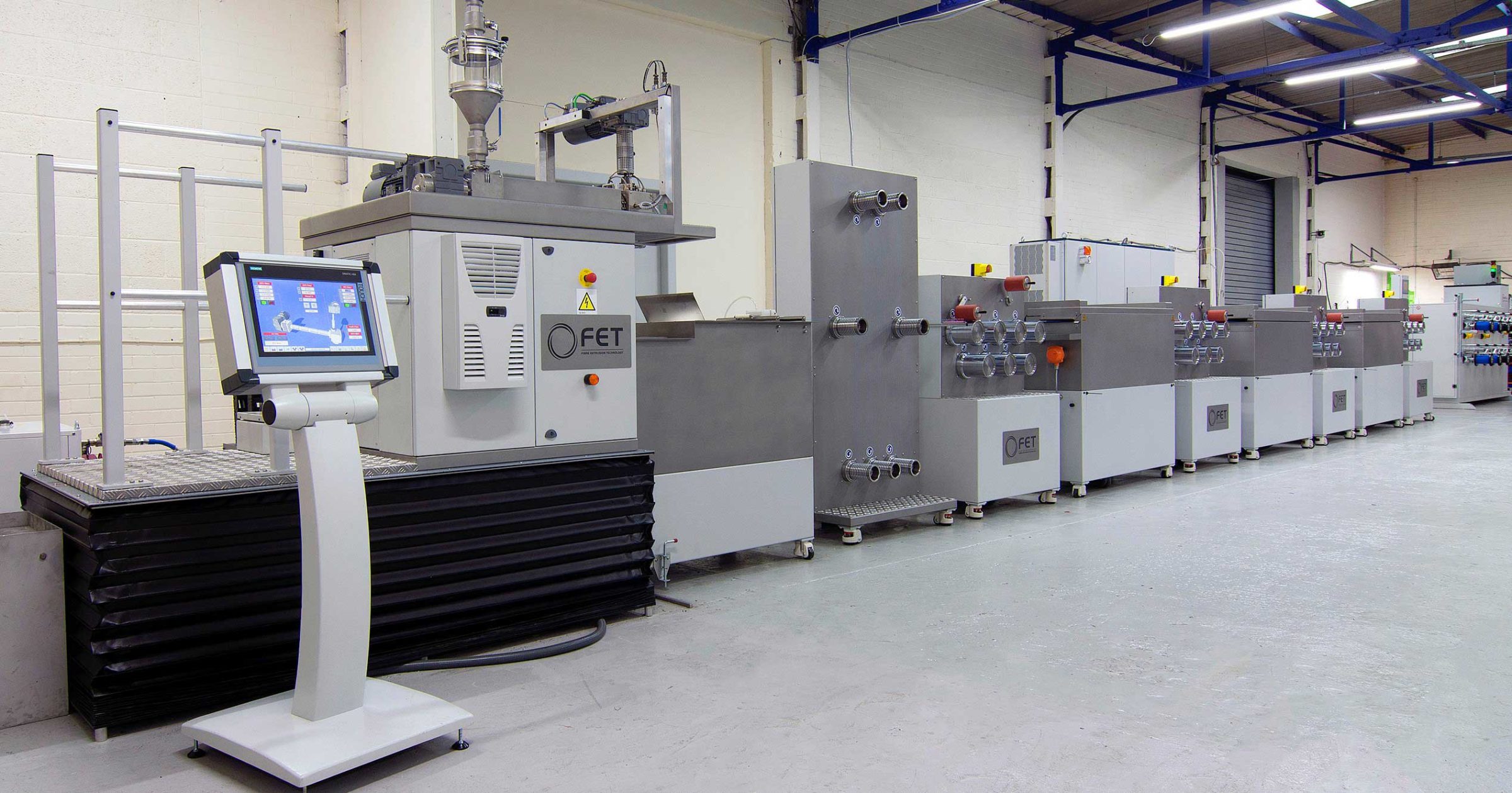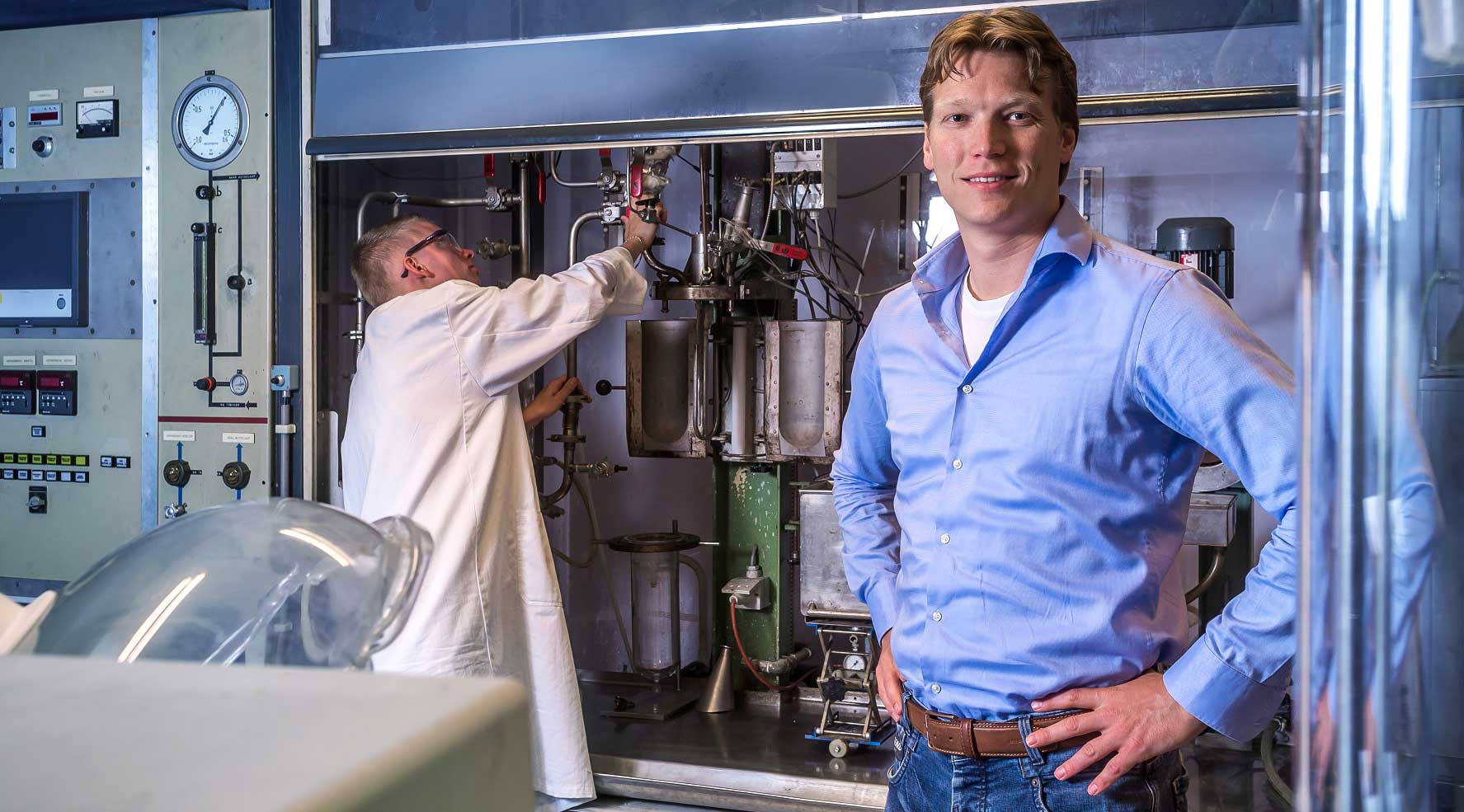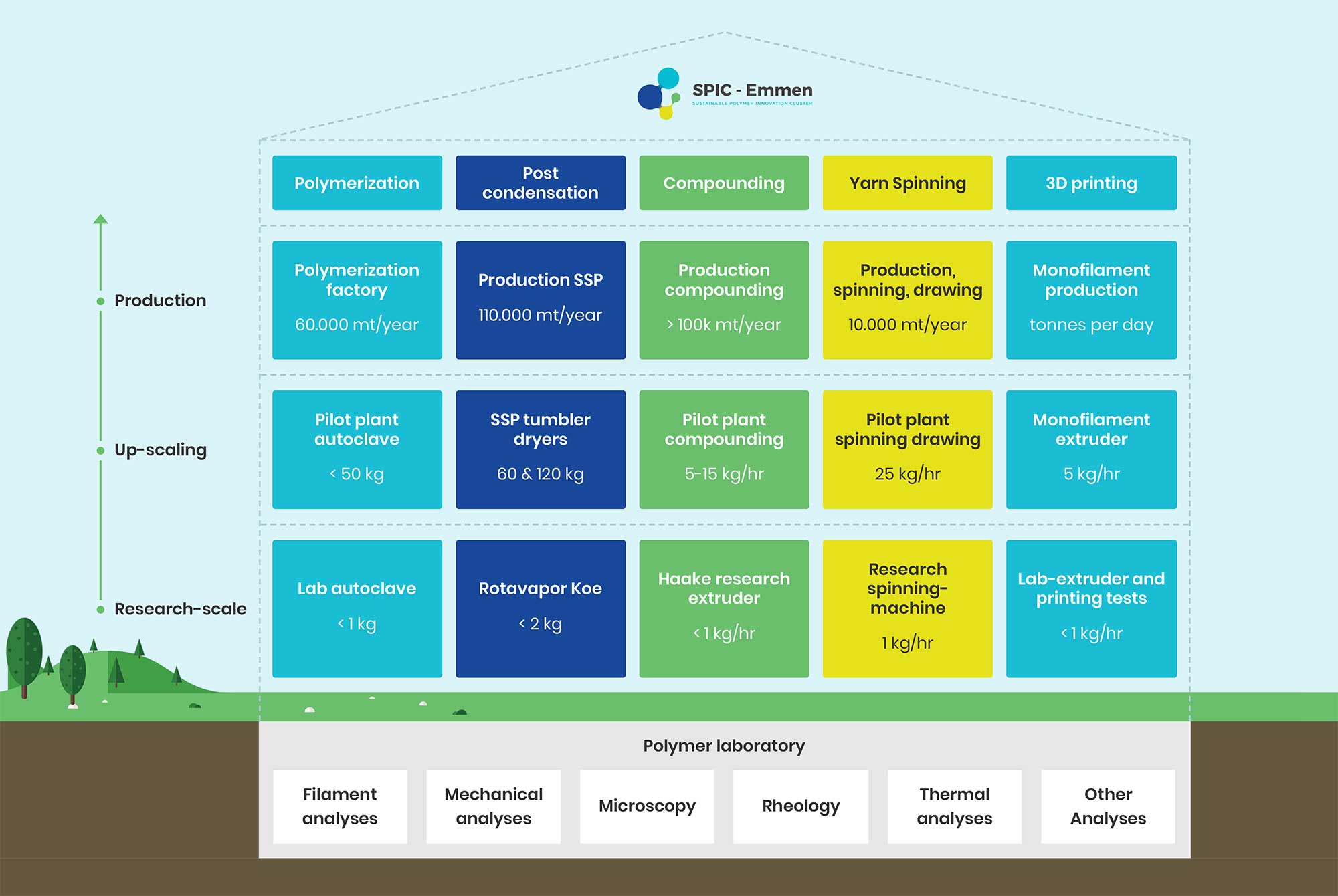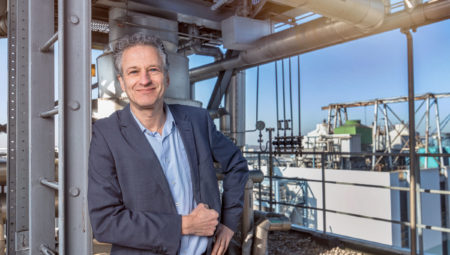We will be acquiring an impressive range of machinery that will make successive processes in the plastics sector available at different levels: from grams and kilograms to trucks full,’ says Gerard Nijhoving, Director of Senbis, which supplies polymer expertise and laboratory services, and which coordinates the use of the machines.
This represents a considerable expansion of the facilities of SPIC Emmen, the cluster of companies and institutions in the Northern Netherlands that jointly make their own facilities available to the market. This way they facilitate the acceleration and upscaling of developments relating to sustainable plastics.
Missing Puzzle Pieces
‘With SPIC Facilities we provide the missing puzzle pieces in the Chemport Europe ecosystem. There will be new reactors for polycondensation, for example for developing polyesters and biopolyesters, a fully equipped compounder, a new line for the production of technical mono-filaments, 3D printing facilities and a further expansion of the existing physical and analytical facilities.’
As the crowning piece, there will be a new pilot spinner that for the first time makes it possible to conduct research at SPIC into very fine textile fibres (the low titers). ‘It is a welcome addition to the equipment used to research technical yarns, which up until now always has been our focus in Emmen. This enables us to investigate current textile-related sustainability issues pertaining to recycled fibres, as well as biopolymers. This concerns questions that up until now we were not able to answer properly, because, while we had the knowledge, we did not have the required facilities.’
With the new extruders and spinners, SPIC Facilities is furthermore able to manufacture bicomponent products. ‘We expect the fibres to have good mechanical properties and sufficient thermal and chemical stability. This generally requires a combination of several polymers. This can be accomplished by compounding them, but also by combining the output of multiple extruders. For example, it is possible to create a filament or fibre whose mantle consists of a different material than its core.’
Another area of attention is the development of filaments and powders for 3D printing. ‘Our spinoff Innofil3D was acquired by BASF and is flourishing. We aim to continue to facilitate this growth with our R&D facilities. We also have a very strong proposition in additive manufacturing with our combination of companies and knowledge institutions.’
Unique in Europe
According to Nijhoving, the flexibility, the wide range of production facilities, the upscaling possibilities and being part of the Chemport Europe ecosystem make Emmen unique in Europe. ‘You may often find such facilities spread out over different locations, but not combined at a single location. Or they may be located together with knowledge institutions, where there is more of a focus on fundamental research. Our research is practical. We aim to help our industrial customers in solving practical issues. Our goal is to as quickly as possible create an operational product and process.’
Not only the machines, but also the industrial knowledge is very important in this respect. ‘Historically, in Emmen we are industrial specialists in polyester-like structures. We have the knowledge required for their development and upscaling, and for subsequently manufacturing fibres, films, injection moulds, preforms and bottles. However, the cluster also devotes a great deal of effort to the mechanical and chemical recycling of polyester. For example, the companies Morssinkhof and Cumapol are working on the chemical recycling of PET as part of the CuRe project. This means that we are able to look after the entire polyester chain in Emmen – cradle to cradle. This is also very interesting for partners working with new biopolymers, because these generally consist of polyester structures.’
Confidence in the Sustainability Trend
The first SPIC Facilities orders have already been placed. Work on installing the machines will begin later this year and will continue into next year. Does it make sense to invest millions at a time when many companies are keeping a tight rein on their purse strings due to the expected economic contraction? Nijhoving: ‘We hesitated at first, but decided to go ahead after all. We are convinced that the sustainability trend started in the plastics sector will only grow stronger over time. As society we have become more aware of our vulnerability, ranging from a tiny virus to major environmental matters, such as nitrogen, PFAS, rising temperatures and the microplastics issue. Over the coming years, a lot more will have to be invested in recycling, and in biobased and biodegradable plastics. That awareness will continue to grow among consumers, as well as governments, industry and companies. I am therefore confident that in the future grateful use will be made of the facilities we are now installing to be able to achieve this change.’
This article was created in cooperation with Chemport Europe.
